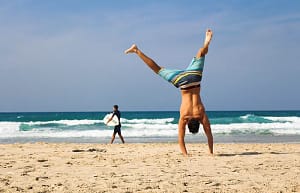
At Holina, we understand that that when it comes to a long-term successful recovery, addiction treatment in residential rehab is only the beginning. But it’s such an important beginning!.
It’s time to get back to yourself.
Choosing to adopt an alcohol free lifestyle can be triggered by various things, including historical alcohol problems and simply selecting the healthiest version of yourself. There are so many different reasons why different people decide to go down this path, but yet the exercises we can use to achieve an alcohol free lifestyle remain constant.
Here are the best 10 suggestions we have to achieve a permanent alcohol free lifestyle:
 1. Make significant social changes (at least for the time being)
1. Make significant social changes (at least for the time being)When you’re ready to adopt an alcohol free lifestyle, changing the people you’ve been hanging out with could be a matter of success or failure. You don’t have to definitively cancel all your mates and never see them again. But permit yourself some space whilst you shift over towards your alcohol free lifestyle, and that probably best begins with hanging out with other like-minded alcohol free lifestyle-orientated people, at least for a start. Change the places you’ve been socialising at. Adjust the activities you’ve been engaging in. The easiest way to achieve this could be by committing to spending time in 12 Step Fellowships, making new friends from the groups, and socializing with sober people, also seeking their alcohol free lifestyle.
 2. Dry House
2. Dry HouseIt is a really smart idea to empty and remove any bottles, cans and containers that may contain or have contained alcohol. There’s simply no need to keep it around. No point in saving it for a rainy day. Simply give it away to other friends or family if you don’t want to pour it away. But always best to know it’s not in your house. However, if your partner or someone you live with does want to continue to consume alcohol, then encourage them to create a specific space to hold and contain it, ideally out of sight or better still, locked away somewhere. Ask them, to support you in your efforts to maintain your alcohol free lifestyle.
Be careful of any other mementoes in your house that may remind you of your previous lifestyle, or that may trigger emotional reactions within you and then encourage you to return to previous pastimes. Have your home fully (professionally) cleaned and get all paraphernalia removed by someone that you trust. Or do it yourself, but do it thoroughly. No Pint Glasses, No Bottle Openers, No Corkscrews, and No paraphernalia that may remind you of your drinking days.
 3. Be Accountable To Someone
3. Be Accountable To SomeoneHave a closed-mouthed friend or a “Sober Buddy”, maybe your partner or spouse or someone at work or in your crowd of friends, who’s also on their alcohol free lifestyle, with whom you can be held (or hold yourself) accountable. Inform them of the changes you’re undertaking and ask them to check in with you on a daily/weekly basis to ensure you remain on target. Ask if you can send them daily updates on your success and ask them to share theirs.
This joint journey will serve you both towards your alcohol free lifestyles. This will encourage you to stick to the plan and to stay on track if only to not lose face and have such a shared goal together. Also, if you know anyone who’s previously made similar changes, now would be a really good time to raise the topic in a discussion with them and ask for their support or guidance.
 4. Replacement Therapy
4. Replacement TherapyReplace your harmful activity with something else – ideally something that doesn’t bring further harm to you – An obvious suggestion is to return to the gym daily or practice some other form of physical exercise. Also, hydration is super important and can be a tool to replace drinking water patterns with plenty of water. Adding enjoyable food to your diet and appreciating its taste and texture can seriously complement any alcohol free lifestyle.
This feeds your pleasure sensors and is easily achieved with nice fruits, or even chocolate (remember to only eat sensible amounts). Alternatively (or in addition), you could play music, go to comedy shows, or find other places of artistic creativity to explore activities that permit your alcohol free lifestyle to experience the release of endorphins whilst you smile and laugh.
 5. Imagine / Visualise / Dream of your future alcohol-free lifestyle
5. Imagine / Visualise / Dream of your future alcohol-free lifestyleVisualise yourself in the future, feeling happy, joyous and free. Close your eyes and imagine your ideal world filled with all your healthy desires. Visualisation is often the best way to begin making any shifts or changes in your life. Visualise yourself enjoying yourself whilst having a great time doing something positive and healthy as a pastime.
Imagine just how great you’re going to feel living such an alcohol free lifestyle and then permit yourself to move towards your imagined hopes and dreams. It’s amazing how things can show up once we start imagining them, especially in this context.
 6. Activate Yourself
6. Activate YourselfCreate an alcohol-free lifestyle by designing a new or original daily structure for yourself (and others around you if it helps?). Strategize your free time differently. Plan your free evenings with healthy and happy activities. Ensure you fill up your spare time with pastimes booked or arranged well in advance. Have backup plans in case your schedule doesn’t come together, and you need to switch things around. Essentially, do your best to make sure you’re not bored or lonely.
Commit yourself to dedicate more time to your children, partner, or other sober friends. Pay an even greater interest in your family and friends successes, as well as your own.
 7. Educate yourself about your previous lifestyle.
7. Educate yourself about your previous lifestyle.Many people who choose an alcohol-free lifestyle reflect on their previous activities with shame, guilt, or embarrassment. However, this can be a necessary part of the process towards your desired goals. Educate yourself on the physical harm your drinking has been causing your body. Look at some of the antics of your past and consider how tragic they could have been if you’d not had quite so much good fortune. Looking back you may well see just how lucky you have been. Now, look to your future and consider how things could look if you don’t change at this time.
How will your life look or feel in another year or two if you carry on without shifting over to an alcohol-free lifestyle? How will you be in the further five years of your life? Will you still be alive by the time you turn 50? Look at pictures of people ravaged in a physical sense by the long-term effects of drinking. Consider the significant negative impact this could be having on your career, your finances, your health, your family, and your life.
 8. Write Some Notes
8. Write Some NotesCompile a list of all the times you’ve upset someone, let them down, broken a promise, had to do a U-turn, or lied, cheated, or manipulated someone you genuinely care about, or even people you don’t know but they entered your life and are worse off for it. Consider whether your previous behaviours and lifestyle were morally OK with you. Maybe this will drive you towards your alcohol free lifestyle with even more vigour and passion towards doing the right thing.
Break up your forthcoming week into chunks of times within each day, like 6 am – 10 am, 10 am to 2 pm, 2 pm to 6 pm, 6 pm to 10 pm etc or however best suits you. Then fill these blocks of time with activities that serve your newfound alcohol free lifestyle. Make yourself a commitment that you’ll maintain your alcohol free lifestyle for the next foreseeable future and using this schedule you’ll be able to see just how to achieve this.
Review your activities frequently and see how much you benefit from them as you go through your weeks. Never lose sight of your goal of achieving your alcohol free lifestyle. It’s important.
 10. Engage With A Professional
10. Engage With A ProfessionalIf you’re ever serious about doing something and you don’t have any previous experience, education or observations, it’s always a good idea to ask for help from a professional. After all, these people have built their lives around helping people in their own chosen specific niche, so surely, they’re going to have plenty of value to contribute towards your success. You will always be able to find a Professional to communicate with, either face to face or in today’s modern world, through a computer or smartphone (Zoom is a particularly popular Application (App) for video calling). It could be a Therapist, a Counsellor, or a Coach of some kind (Recovery Coaches are popular), do consider the value they’ll give you even simply as an accountability partner. You could check in with them daily
During your early days, please stay safe and surround yourself with happy, cheerful friends and family who seem to enjoy themselves organically with positive activities. Often family gatherings that are focussed on children are far more likely to be safe pastimes. Schedule your weekends and spare time for the children in your life – sons/daughters/nieces & nephews/cousins etc. But most importantly, ensure you’re enjoying yourself and whatever you’re doing on your path to sober living.
Happiness is an internal feeling, often generated by external activities and observations. One of the simplest ways to feel happy or optimistic about yourself is to help other people. The clearest examples of people who’ll benefit from your altruism are children and the elderly. To see what you can do to make someone else’s day even happier, and then begin to notice how great you feel about your own. Put simply, if you want to help yourself feel great about your alcohol free lifestyle, try helping someone less fortunate than yourself.
There were 270,705 people in contact with drug and alcohol services between 1 April 2019 and 31 March 2020.
Almost 21 million Americans have at least 1 addiction, yet only 10% of them receive treatment.
Harmful use of alcohol kills more than 3 million people each year, most of them men.
Global alcohol intake has increased by 70%, a study warns.








Holina Addiction Treatment Center
Koh Phangan – Thailand

At Holina, we understand that that when it comes to a long-term successful recovery, addiction treatment in residential rehab is only the beginning. But it’s such an important beginning!.
It’s time to get back to yourself.
© Holina Rehab Koh Phangan 2023
Design & Development by Webheadz Media